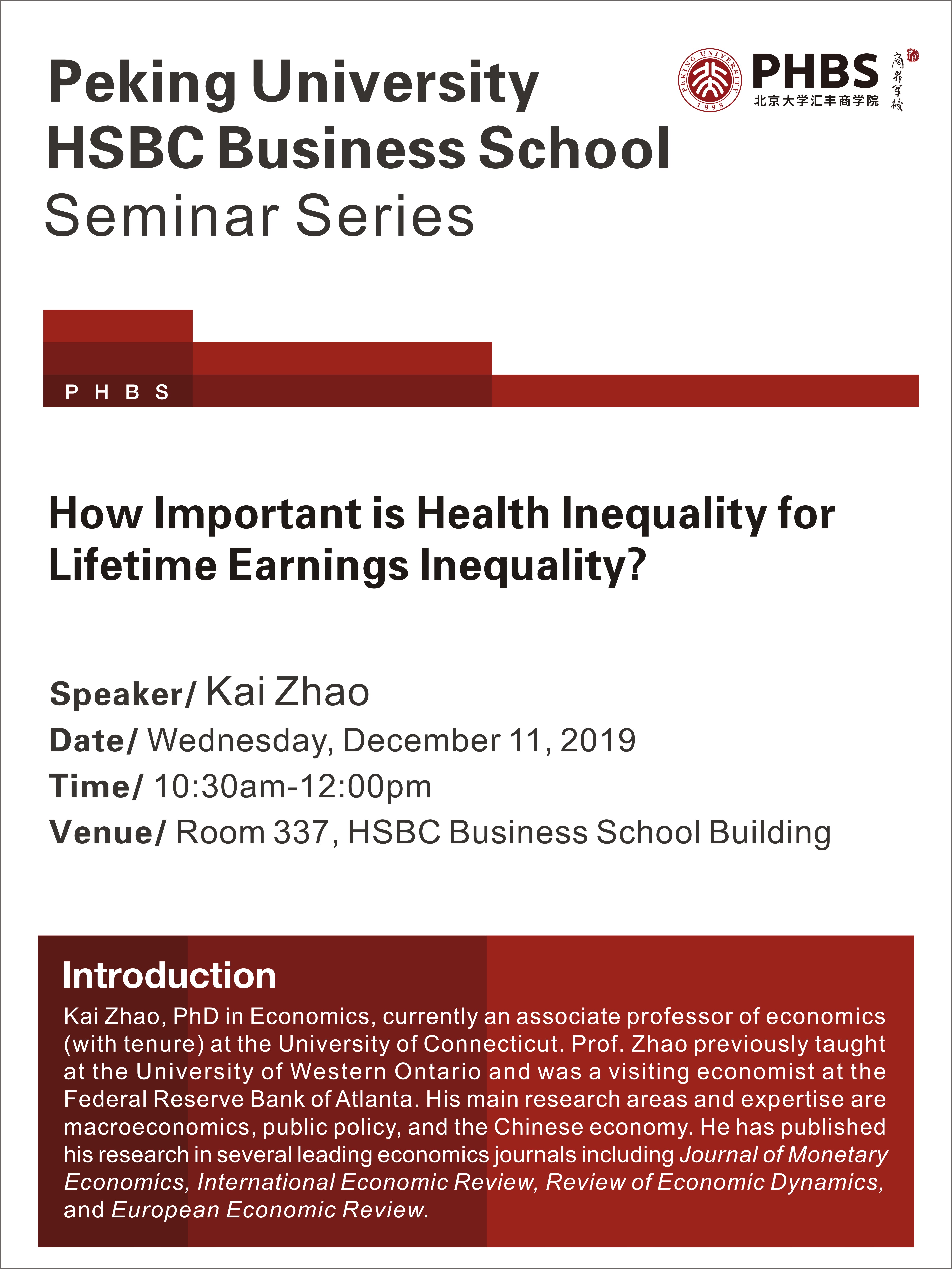
We study the impact of poor health on lifetime earnings inequality. First, using a dynamic panel data approach, we provide empirical evidence that negative health shocks reduce earnings. The effect is primarily driven by the participation margin and is concentrated in less educated and poor health individuals. Next, we build a dynamic, general equilibrium, lifecycle model that is consistent with these findings. Working-age individuals in the model have heterogeneous and risky health profiles. They choose to either work, or not work and apply for social security disability insurance (SSDI). Health impacts individuals' productivity, SSDI access, disutility from work, mortality, and medical costs. Calibrating the model to the U.S, we find that in an economy where all individuals receive the average health profile the variance of log lifetime earnings is 25 percent lower (at age 65) and 23 percent lower (at age 75) relative to the benchmark. The most important factor accounting for the decline is the fact that the removal of health inequality reduces lower-productivity individuals' access to SSDI and, consequently, increases their labor supply.









